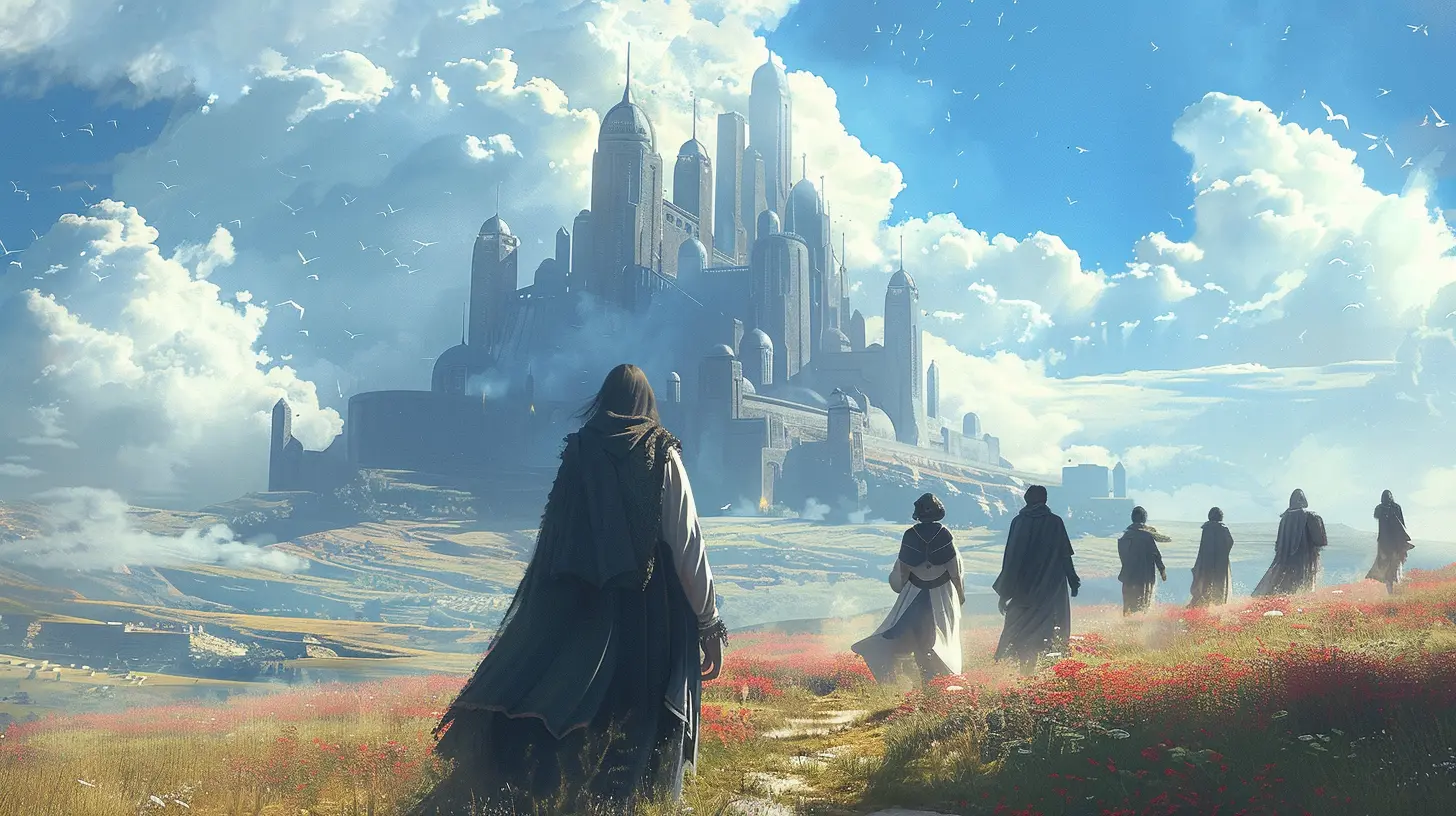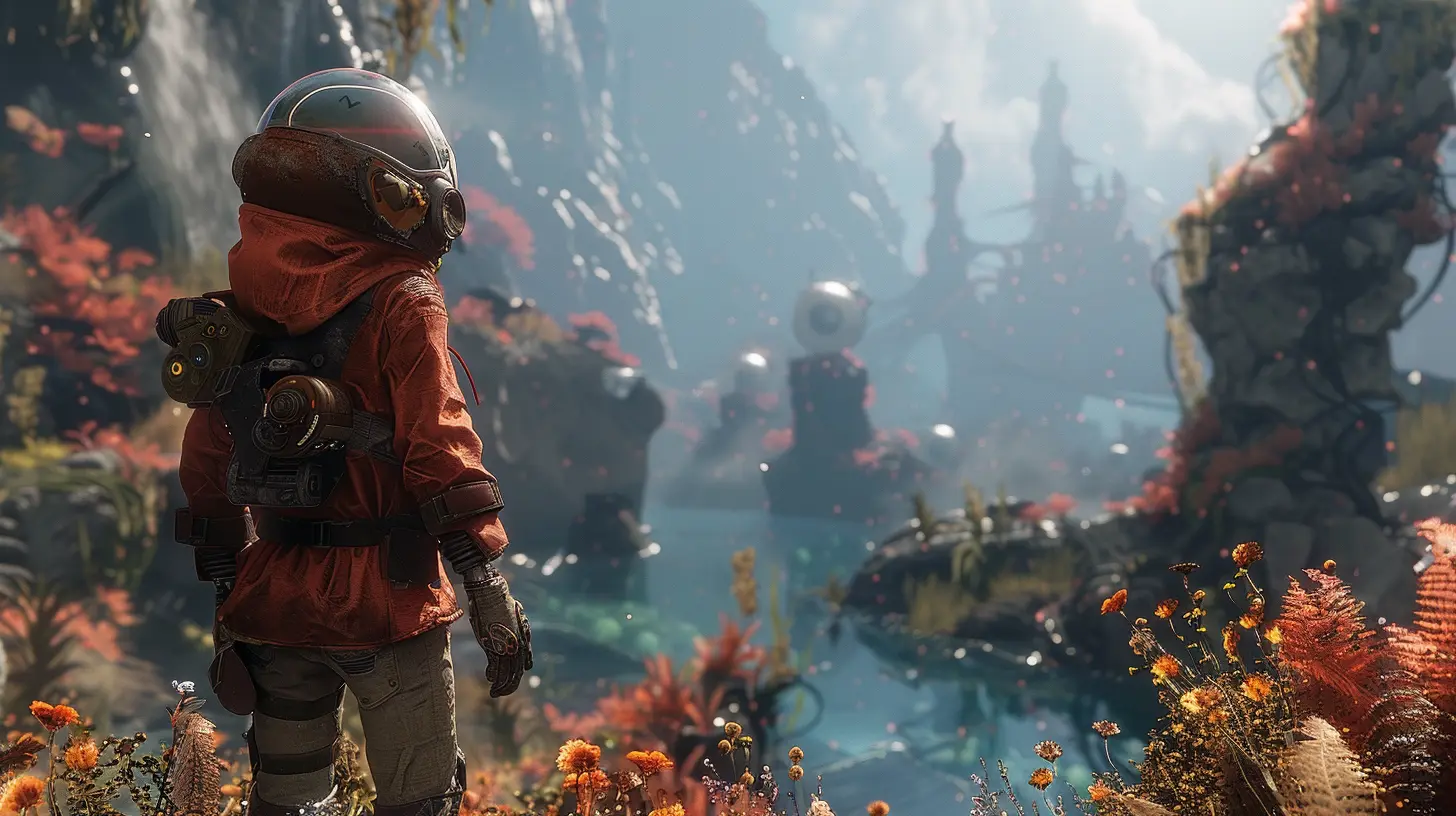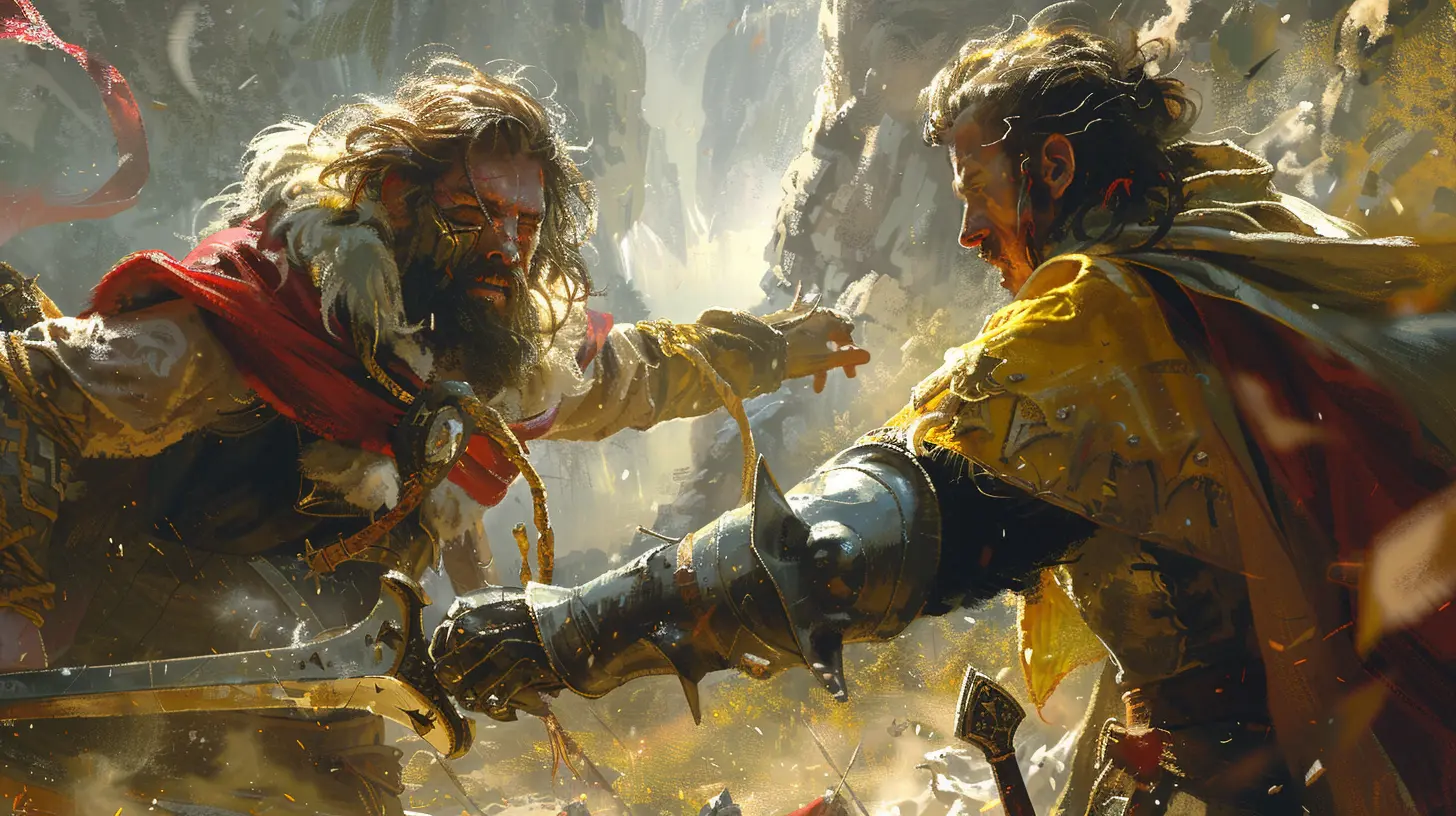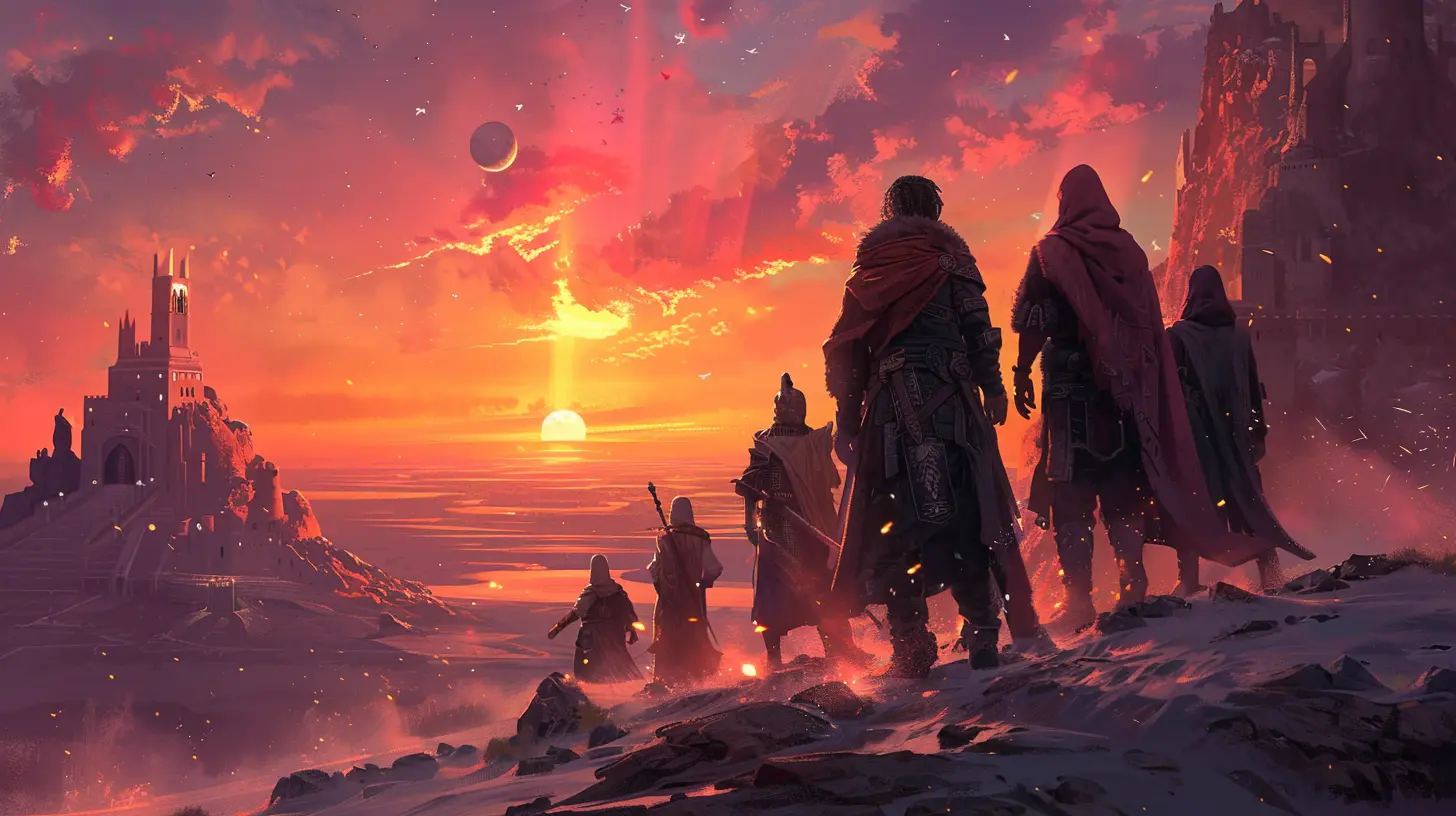Narrative-Driven vs System-Driven RPGs: Two Paths to Immersion
12 March 2025
When it comes to RPGs (Role-Playing Games), players are spoilt for choice. Some games sweep you away with a gripping tale, while others let you loose in a sandbox of mechanics and let you write your own story. These two approaches—narrative-driven RPGs and system-driven RPGs—couldn't be more different, yet they both strive for the same thing: immersion. But which one speaks to you more? Let’s dive in, break it down, and figure out what makes these two styles unique.
What Are Narrative-Driven RPGs?
Alright, let’s start with the storytellers of the RPG world—narrative-driven games. These are the titles that hook you with a rich plot, layered characters, and choices that feel deeply personal. Think of games like The Witcher 3: Wild Hunt or Mass Effect. Their worlds feel alive because, well, they revolve around you.In these games, you’re not just a silent avatar; you’re a character with a backstory, motivation, and a role to play in a larger narrative. Every decision, every dialogue choice, and every action can ripple through the story like dropping a stone in a pond.
But here’s the thing: this kind of immersion isn’t just about pretty cutscenes or eloquent scripts. It’s about the game making you care. You don’t just play Geralt of Rivia or Commander Shepherd—you become them. And that’s the magic. 
What Are System-Driven RPGs?
Now let’s flip the script and talk about system-driven RPGs. These are the games that hand you a toolbox and say, "Okay, now go make something amazing." Think The Elder Scrolls V: Skyrim or Divinity: Original Sin 2. These games are less about leading you down a predefined path and more about giving you the freedom to create your own adventure.System-driven RPGs focus on mechanics. The emphasis is on gameplay systems—combat, exploration, crafting, character creation—that work together like gears in a machine. Instead of telling you a story, system-based games say, “Here’s the world. You do you.” It’s like stepping into a sandbox as a kid, where your imagination is the only limit.
And guess what? That freedom can be intoxicating. Want to roleplay as a thief who steals from nobles in Skyrim? Go for it. Prefer to be a fire-wielding mage in Divinity? Knock yourself out. It’s less about following a script and more about creating your own. 
What Makes Narrative-Driven RPGs So Immersive?
Here’s the big question: why do people get so sucked into narrative-driven RPGs? Well, it all comes down to connection. These games immerse you because they tell emotionally charged stories that feel tangible and real.Take The Last of Us Part II (though technically not a traditional RPG). The narrative isn’t just about survival in a post-apocalyptic world—it’s about grief, revenge, forgiveness, and everything messy in-between. Sure, there are gameplay mechanics, but the story? That’s the star of the show.
These games often use techniques like:
1. Branching Narratives: Your choices impact the story. Did you save the village or let it burn? In games like Dragon Age: Origins, decisions like this don’t just offer replayability—they make the world feel alive.
2. Engaging NPCs: Let’s be honest—without characters like Garrus from Mass Effect, a narrative-driven RPG would feel hollow. These games excel at making you care about your companions.
3. Moral Dilemmas: Ever find yourself sweating over a decision in a game? That’s because great narrative-driven RPGs make you think, “What would I do in this situation?”
It’s the difference between watching a movie and starring in one. 
Why System-Driven RPGs Shine
On the other hand, system-driven RPGs thrive because they encourage creativity and experimentation. These games turn you into both player and storyteller. The systems themselves become your toolkit to build your story.Take Minecraft (yes, it’s an RPG in its own sandboxy way). This game doesn’t tell you what to do—no quests, no cutscenes, no “main story.” You’re dropped into a world, given a pickaxe, and boom—you’re off. Similarly, games like No Man’s Sky or Stardew Valley let you create your narrative through the systems they provide.
Here’s why system-driven RPGs can be incredibly immersive:
1. Endless Replayability: With no strict narrative to follow, every playthrough can feel unique. It’s why people still log hundreds of hours into games like Skyrim a decade after release.
2. Player Freedom: Want to ignore the main quest and spend hours hunting dragons or building your house? Totally fine. You’re in charge.
3. Complex Systems: These games often have deep mechanics to explore, like alchemy, crafting, or even managing relationships. The depth of these systems allows players to find their own “flow.”
Think of system-driven RPGs as cookbooks versus narrative RPGs being a single meal. One teaches you to make anything; the other serves you something gourmet. Both are satisfying, just in different ways.
Which Style Is Better?
Ah, the million-dollar question. Narrative-driven or system-driven—what’s the better path to immersion? Honestly, it’s like comparing apples to oranges. Both have their strengths, and it really depends on you.If you love a good story and want a cinematic experience, narrative-driven RPGs are your jam. These are the games where you sit on the edge of your seat, gripped by what happens next. They’re perfect if you’re looking to bond with characters, face tough moral choices, and go on an emotional rollercoaster.
But maybe you’re someone who craves freedom. If you want to chart your own course, tinker with mechanics, and lose yourself in endless possibilities, then system-driven RPGs are more your speed. They let you be the architect of your own experience, giving you the tools to create your story.
Can the Two Styles Coexist?
Funny enough, we’re seeing more RPGs that blur the line between these two styles. Games like Cyberpunk 2077 or Red Dead Redemption 2 offer deep narratives and freedom to explore and interact with systems. It’s like having the best of both worlds.Developers are realizing that the sweet spot might lie in hybrid approaches. Why not give players an epic story but also let them go off the beaten path? It’s a win-win.
Final Thoughts
Narrative-driven and system-driven RPGs might be two sides of the same coin, but both offer something deeply personal—immersion. Whether it’s through a heartfelt story or the freedom to forge your own destiny, each style speaks to different players in unique ways.At the end of the day, there’s no definitive right or wrong choice. The beauty of RPGs is that they let us escape, dream, and become someone else, even for just a little while. So, whether you’re weaving through a narrative web or creating your own adventure, one thing’s for sure: the journey is always worth it.
all images in this post were generated using AI tools
Category:
Role Playing GamesAuthor:

Jack McKinstry
Discussion
rate this article
5 comments
Antonia McGivern
Fascinating comparison! How do player choices in each style impact emotional engagement and immersion levels?
April 15, 2025 at 3:28 PM

Jack McKinstry
Player choices in narrative-driven RPGs deepen emotional engagement through story and character relationships, while system-driven RPGs create immersion by allowing players to experiment and strategize within dynamic systems. Both styles enhance the gaming experience in unique ways.
Colton Johnson
Ah, the age-old debate: do you prefer your RPGs with a side of gripping story or a sprinkle of mind-numbing stats? Because who wouldn’t want to choose between being emotionally invested in a character’s tragic backstory or meticulously counting imaginary gold coins? Decisions, decisions!
March 26, 2025 at 4:06 AM

Jack McKinstry
Both narrative-driven and system-driven RPGs offer unique paths to immersion; it's all about personal preference. Some savor deep stories, while others relish the mechanics. Why not enjoy the best of both worlds?
Destiny Bellamy
Great article! I appreciate the insightful exploration of narrative-driven and system-driven RPGs. Both approaches offer unique paths to immersion, catering to different player preferences. It’s fascinating to see how each style enhances storytelling and gameplay experiences in RPGs.
March 25, 2025 at 4:47 AM

Jack McKinstry
Thank you! I'm glad you found the exploration of both approaches insightful. Each style truly offers a unique way to engage players and enhance their experiences!
Micah Pope
Both narrative-driven and system-driven RPGs offer unique pathways to immersion, inviting players to lose themselves in rich stories or complex mechanics. Embrace both paths—each journey enhances the magic of gaming!
March 17, 2025 at 5:07 AM

Jack McKinstry
Thank you for your insightful comment! I completely agree—embracing both narrative and system-driven RPGs truly enriches the gaming experience and offers diverse ways to immerse ourselves in these worlds.
Diesel McClary
Embrace both narrative and system-driven RPGs! Each path offers unique immersion, enriching our gaming experiences and deepening our connection to the story.
March 14, 2025 at 3:55 AM

Jack McKinstry
Absolutely! Both narrative and system-driven RPGs provide unique forms of immersion, enhancing our overall gaming experience and connection to the story. Embracing both can lead to richer adventures!




